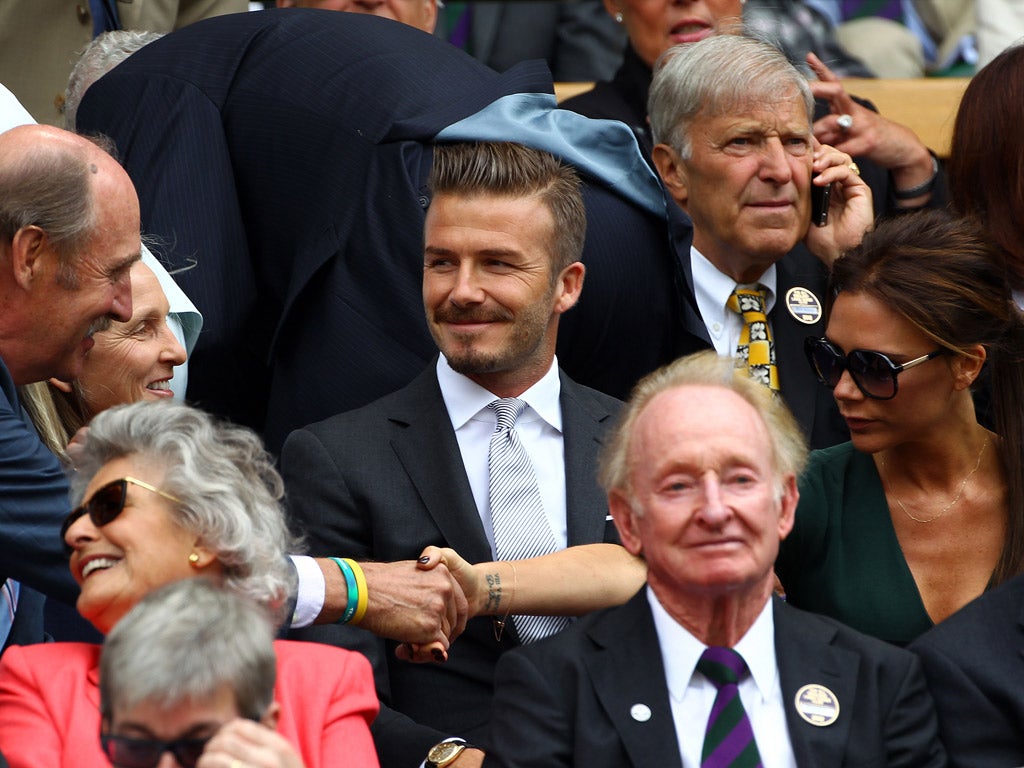Chris McGrath: Nostalgic BBC writes tennis history before it happens
View From The Sofa: Did Andrew Castle have a verbal time capsule ready for future generations?

This was a classic BBC occasion. And didn't the BBC just know it. Because you can forget the Centre Court roof – it's the closed shop they needed to worry about; the paradox that the most precious broadcasting rights in sport are those immured against the free market. And that means identifying moments such as these, in the nation's communal memory, as somehow contingent on their stewardship.
Sure enough, they set the scene yesterday on the margin between self-reference and self-reverence. The broadcast opened with a spool of iconic commentaries, from Peter O'Sullevan calling Red Rum's third National to Kenneth Wolstenholme himself declaring: "It is now."
You had to feel for Andrew Castle. Did he have his lines ready? Would he find the words to distil Andy Murray's golden moment, a verbal time capsule for future generations?
Expectation, in other words, was not confined to Murray himself: the whole nation was being invited to wallow in anticipated nostalgia. You could almost see it, certainly once the roof closed. As the players returned from the rain break, Sir Steve Redgrave was interviewed at court-side and observed how the arena had now obtained "a very yellow tint".
But all nostalgia is bittersweet, and the BBC team did not resist a due foreboding on Murray's behalf. A wistful Tim Henman, gamely pretending that he was not talking about himself, wished that Murray could be endowed with "a selective memory". That way, he could suppress the legacy of doubt – having failed to win a single set in three previous Grand Slam finals.
John McEnroe interviewed his boyhood hero, Rod Laver, who candidly reproached Murray. "He plays a safe game a little bit too long," he said. "That's the one thing I think maybe he's missing: that sixth sense, 'I've got to win this point'." Nor did McEnroe himself hold back. "I can't recall a time when Murray got angry and turned it to his favour," he said. This, then, was the day Murray had to ask himself: "Are you going to be an also-ran forever?"
And there would soon be a moment when this despondency unmistakably infected the whole nation. That was when Sue Barker turned to McEnroe and said: "I know we've got to let you go, you've commitments to American television." We had already seen Pat Cash summoned from the studio by his Five Live duties. "Tune into the radio everybody," he said, as he left. "You don't want these guys. What do they know?"
A trifle harsh on Castle, Henman and Boris Becker, even if their chat-to-camera in the commentary booth, during the rain break, would prove irresistibly suggestive of three Thunderbirds at the console. At the very beginning, as the finalists left the locker room, Becker instantly spotted that Federer had sportingly levelled out the odds. Only Murray appeared to be carrying a racket. But then Becker observed him jumping nervously up and down, behind the insouciant Swiss seraph, as they waited to step on to court. "Oh dear," said Boris. Henman said he actually liked to see that. "Oh dear," said several million Britons.
But the pressure was on Federer too, Becker noted. "It could be his last Wimbledon final, as well," he said. It was a throwaway remark, with epic intimations. True, the team briefly developed a surreal theory that Federer had won 16 Grand Slam titles with a backhand like a wet dishcloth. As soon as the roof closed, however, it caved in on Murray.
Becker noticed that his "bardy language" was increasingly negative. He did not mean that Murray had resorted to Hamlet's bleakest soliloquies. After the lachrymose presentation ceremony, Castle would instead end up invoking Kipling and the twin impostors. And if the tint was yellow, it had never been rose.
Join our commenting forum
Join thought-provoking conversations, follow other Independent readers and see their replies
Comments
Bookmark popover
Removed from bookmarks